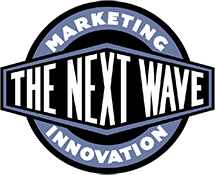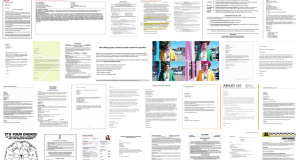You are selling yourself to people who sell things for a living.
Make every word count.
Leave out all the stuff about being a team player, or motivated. Actions speak louder than words. Show us that you not only want to work for us, but that you actually took the time to learn about us.
Some actual cover letters (painful examples):
“To the Next Wave Team,
As a (Insert your majors) Studies major, I have taken it upon myself to seek out opportunities that aim to integrate my knowledge into practical application. With that, I feel that your open internship position would be a worthwhile endeavor to expand my skills and tailor them to the objectives that best serve the The Next Wave.”
Rule #1 - Make it Personal
Find out names of the people you are approaching. This isn’t an ad to the masses, it’s an ad to a real live person at a unique firm. Do your research.
“Hello, my name is (your name) and I believe that I could be a huge asset to your team. I am a graduate of (Insert Favorite) University with a degree in (some related field) and extensive experience in (skill 1) and (skill 2).”
Rule #2 - Know your Audience
What you think is great, sure, but what I think is all that matters. Talking about your school or your experience might be great, but there are legions of people who can say the exact same thing.
“As a confident, articulate and goal-driven production professional with (X)+ years of experience, I am an ideal candidate for this role with The Next Wave. I am a creative problem solver with a demonstrable record of helping organizations meet their goals. My positive attitude, world-class work ethic, and attention to detail have helped me succeed in a variety of operational projects. I take my work seriously and approach every undertaking with enthusiasm, diligence, and positivity.”
Rule #3 - Show, Don’t Tell
This one is important. Instead of talking about skills you think you have, demonstrate them. Your cover letter is an introduction, your resume the reference guide, and your portfolio should be the shizzle/sex appeal/show.
Not that we love to have our ego stroked, but, demonstrating a knowledge of the firm you are applying to says more about how you approach a client than how you get a job. If you want to sell BMW that you are the person who has the skills necessary increase BMW motorcycle sales, the cover letter is where it starts. Same thing with selling yourself to us, or anyone.
Make it easy for us to see that you know something about our firm, our culture, our clients, and how you will be an asset.
This example is overkill, but, when Chase Zreet, who was trying to get a job at Wieden+Kennedy to work on the Sprite account he did a whole video, with real production values. This is what your competition looks like:
Of course he got the job. Even the client noticed.
Getting noticed in this business is our business. Lawson Clarke may or may not be a great copywriter, but he got a lot of attention as the “Naked Copywriter”- and his site, www.malecopywriter.com
Go visit. You decide, is this the guy you would want coming up with your next campaign? Should you be hiring him to help you get the job you think you’re worthy of?
His campaign for a job came out in 2009. I still remember it.
AdWeek magazine has a helpful post: 9 Tips for landing your first job at an advertising agency. Hint, a lot of it applies to your second and third jobs at an agency as well. Other than Lee Clow (2 agencies) and Alex Bogusky (1 agency) most of you will do some job hopping.
So, key takeaways: The cover letter shows you know something about your target market (the agency you are applying to), you have some unique or interesting insight or skills, that will help them make money if they hire you, and it’s memorable. Some people think this means delivering your message like a stunt- wrapping it around a sandwich, which may be attention getting, but, I’m more inclined to be impressed with something that can spread, cost effectively, like both of the job pitches above. You aren’t going to buy the masses sandwiches to buy your product.
Your portfolio, speaks for itself. Including a client brief summaries , as well as Key Performance Indicators Met are the only additions to the work. The work should speak for itself. Clearly state what your part was in the project. Don’t show work others did without giving proper credit.
Resume: Clean and simple. Where you worked, what you did, what you learned. Include hobbies, interests, because, well, interesting people work in advertising. Even working at Burger King can be valuable, if the agency is working on a fast food account- if you can share insight you gained while working there.
And, lastly, make sure your resume has your name in the file name. Make sure it’s a PDF. If you have links in it- make sure they work. There is nothing worse than saying, “i want to look at that Bogusky kid’s portfolio again” and you search your computer for a file with his name attached that was named “My 1989 ad portfolio.” Sorry Alex,
Now, go get ’em killer.
note: I’d asked Alex Bogusky to review this post in an earlier form, and it went tangential, and the post got a re-write. But, here is the advice the Creative Director of the Decades gives:
The advice I give kids is pick three place that you would die to work at. Learn everything you can and do everything you can to weasel in from every angle.
1 place is okay too.
When you are talking top of the world beating agencies the weasel factor is key, because it’s you against everyone else who thinks they’ve got the next big thing in them.


This article is super fun!
I actually found your agency while looking at jobs on Indeed. Your Ad was ridiculous with insanity… I’m dead… from laughter!
It was FANTASTIC!
I would apply, but I already live in Dayton, I’m not Google Ads Certified … and I do not read books!
AUDIBLE to the rescue!
Anyway, I just wanted to let you know how much I enjoyed your ad, and I wish you the best of luck in searching for a decent human being 😉
We accept applications from folks in Dayton Holly, but, we sort of need them to be able to do the job. And, Audible won’t make sense with Whipple- it’s a very visually oriented book.
Thanks for writing.